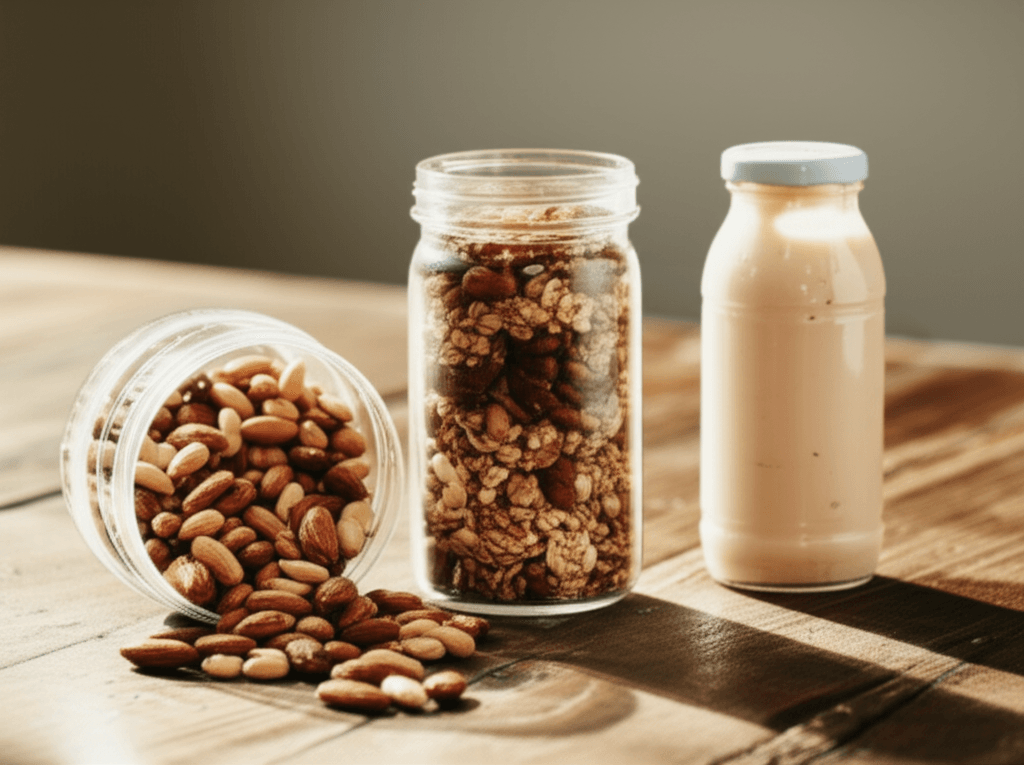Embarking on a weight loss journey often involves adopting habits we believe are unequivocally “healthy.” We hit the gym with zeal, meticulously plan our meals, and aim for consistency. Yet, for many, including experienced fitness coaches, progress can inexplicably stall. The frustrating truth is that some seemingly beneficial practices can inadvertently hinder your weight loss efforts, leading to burnout and discouragement. This article reveals seven surprisingly counterproductive habits and what to do instead to get your progress back on track.

1. Over-Reliance on Cardio and Neglecting Strength Training
Many equate weight loss solely with endless hours on the treadmill or elliptical. While cardiovascular exercise burns calories, an over-reliance on it, especially at the expense of strength training, can be counterproductive.
Why it Hinders Progress
- Muscle Loss & Metabolism Slowdown: Too much cardio, particularly when combined with a calorie deficit, can lead to muscle breakdown. Muscle tissue is more metabolically active than fat, meaning it burns more calories at rest. Losing muscle mass decreases your resting metabolic rate (RMR), making it harder to burn calories efficiently.
- Increased Hunger: Long cardio sessions can significantly increase appetite, potentially leading to overeating and negating the calories burned.
- Cortisol Spike: Prolonged endurance exercise is a stressor. Excessive cardio can elevate cortisol, the stress hormone, which can promote muscle breakdown and fat storage, especially around the abdomen.
What to Do Instead
Integrate a balanced routine that prioritizes strength training 2-3 times per week to build and preserve muscle mass. Complement this with moderate cardio, focusing on high-intensity interval training (HIIT) or shorter, more effective sessions that may even suppress appetite.

2. Underestimating “Hidden” Calories in Seemingly Healthy Foods
You might be diligently choosing what you perceive as healthy options, but many popular “health foods” can be stealthily high in calories due to added sugars, fats, or concentrated portions.
Why it Hinders Progress
- Smoothie Traps: While packed with fruits and vegetables, many store-bought or even homemade smoothies can contain hundreds of calories from added sugars, syrups, nut butters, and full-fat dairy. A seemingly harmless blend can easily pack 500-800 calories.
- Granola and Dried Fruit: Often perceived as wholesome, granola is frequently high in added sugars and oils. Dried fruit, while nutritious, has its sugars and calories concentrated, making it easy to overconsume.
- Salad Dressings and Toppings: A salad can quickly become a calorie bomb with creamy dressings, excessive cheese, candied nuts, or croutons.
- “Low-Fat” Fallacy: Many low-fat or fat-free products compensate for lost flavor and texture with added sugars and artificial ingredients, often making them as calorically dense as their full-fat counterparts.
What to Do Instead
Read nutrition labels carefully. Opt for homemade versions where you control ingredients, choose light vinaigrettes or lemon juice for salads, and practice portion control with calorie-dense healthy fats like nuts and avocados.

3. Not Prioritizing Quality Sleep
Sleep is often the first thing sacrificed in a busy schedule, but consistent, quality sleep is non-negotiable for effective weight management.
Why it Hinders Progress
- Hormonal Imbalance: Lack of sleep disrupts the balance of ghrelin (the hunger-stimulating hormone) and leptin (the satiety hormone). This imbalance leads to increased hunger and cravings, particularly for high-calorie, sugary, and fatty foods. Studies show sleep-deprived individuals may consume hundreds of extra calories per day.
- Slowed Metabolism: Poor sleep can lower your metabolism, making it harder to burn calories. It’s also associated with increased insulin resistance and oxidative stress.
- Decreased Energy and Motivation: Sleep deprivation impacts daytime energy levels, making you less likely to work out and more prone to making unhealthy food choices due to fatigue.
What to Do Instead
Aim for 7-9 hours of quality sleep per night. Establish a consistent sleep schedule and a relaxing bedtime routine.

4. Ignoring Chronic Stress
Modern life is full of stressors, but allowing chronic stress to go unmanaged can significantly derail weight loss efforts, even with a perfect diet and exercise plan.
Why it Hinders Progress
- Cortisol Release: Chronic stress keeps your body in a heightened “fight or flight” state, leading to consistently elevated cortisol levels.
- Increased Appetite and Fat Storage: Elevated cortisol triggers cravings for high-calorie, sugary foods and signals the body to store fat, especially around the abdomen. Research from Yale University in the 1990s linked cortisol secretion to chronic stress and increased abdominal fat deposits.
- Slowed Fat Metabolism: Chronic stress can stimulate the production of betatrophin, a hormone that inhibits an enzyme required for fat metabolism.
- Muscle Loss: Stress hormones can also break down muscle tissue, further slowing metabolism.
What to Do Instead
Incorporate stress-reduction techniques into your daily routine, such as meditation, yoga, deep breathing exercises, spending time in nature, or engaging in hobbies. Prioritize self-care and address underlying stressors where possible.

5. Overtraining and Inadequate Recovery
More is not always better when it comes to exercise. Pushing your body too hard without sufficient rest can lead to overtraining syndrome, which can be detrimental to weight loss.
Why it Hinders Progress
- Hormonal Imbalances: Overtraining can lead to a sustained spike in cortisol levels, similar to chronic stress, which can lead to increased belly fat and insulin resistance. It can also lower testosterone levels.
- Muscle Fatigue and Injury Risk: Excessive exercise without adequate recovery can cause muscle fatigue, decreased performance, and a higher risk of injury, forcing you to take time off from training.
- Impaired Metabolism: Overtraining can shift your body’s focus from fat oxidation to carbohydrate oxidation and even lead to a lower thyroid function, further hindering fat loss.
- Poor Sleep: Paradoxically, over-exercising can increase stress hormones that keep you up at night, negatively impacting sleep quality.
What to Do Instead
Listen to your body. Incorporate rest days and active recovery (like walking or gentle stretching). Ensure your workout routine is well-rounded, balancing intensity with adequate recovery periods. For optimal results, 2-4 (or a maximum of 5) weight-focused sessions per week are often recommended.

6. Obsessing Over the Scale and Ignoring Other Progress Metrics
Fixating on the number on the bathroom scale can be demotivating and misleading. Daily weight fluctuations are normal and do not accurately reflect fat loss or overall health improvements.
Why it Hinders Progress
- Misleading Fluctuations: Your body weight can fluctuate by 2-5 kgs daily due to factors like hydration levels, food volume, sodium intake, hormonal changes, and muscle gain.
- Muscle vs. Fat: The scale doesn’t differentiate between fat loss and muscle gain. You could be losing fat and gaining muscle simultaneously, leading to little or no change on the scale, or even an increase, despite significant body recomposition.
- Demotivation: Solely relying on the scale for validation can lead to frustration and discouragement when the numbers don’t move as expected, even if positive changes are occurring.
What to Do Instead
Embrace “non-scale victories” (NSVs). Track your progress using multiple metrics:
- Body Measurements: Use a tape measure to track changes in your waist, hips, chest, and thighs.
- Progress Photos: Take photos in the same pose and clothing every few weeks to visually track changes in body shape.
- Clothing Fit: Notice how your clothes feel. Are they looser? Do they fit better?
- Strength and Performance: Are you lifting heavier, running longer, or improving your workout intensity?
- Energy Levels: Increased energy and improved mood are key indicators of better health.
- Health Markers: Improvements in blood pressure, cholesterol, or blood sugar levels are significant signs of progress.

7. Excessive Calorie Restriction and Skipping Meals
While creating a calorie deficit is crucial for weight loss, going too low or skipping meals altogether can backfire and slow down your progress.
Why it Hinders Progress
- Metabolic Slowdown: Severely restricting calories or skipping meals can signal your body to conserve energy and slow down your metabolism. This makes it harder to burn calories.
- Increased Hunger and Cravings: Depriving your body of consistent fuel can disrupt hunger and satiety signals, leading to intense cravings and an increased risk of overeating or binge eating later.
- Nutrient Deficiencies: Focusing only on calorie numbers without considering nutritional quality can lead to deficiencies, affecting energy, mood, and overall health.
What to Do Instead
Focus on a moderate, sustainable calorie deficit (typically 300-500 calories below your maintenance). Prioritize nutrient-dense whole foods and establish regular meal patterns to keep your metabolism steady and hunger at bay. Ensure each meal includes lean protein, fiber, and healthy fats to promote satiety.
By recognizing these common pitfalls and adjusting your approach, you can move past frustrating plateaus and achieve more sustainable and effective weight loss. It’s about working smarter, not just harder, and truly listening to your body’s signals.







